Our dear tai chi master, Dr. Paul Lam, and his partner Hazel invited us to join them as part of a small group on a two-week tai chi workshop/tour of China. Dr. Lam said he designed the trip to be “fun and serious, leisurely and exciting, like the yin and yang of tai chi.”
This design of contrasts generated a trip of remarkable paradoxes:
Absolutely clean wide modern streets and filthy holes-in-the-ground bathrooms.
Great Wall preserved from history and high-speed trains speeding into the future at over 300 km/hour.
Ancient palaces and ultra-modern high-rises side by side.
Friendly people who smile and also push and shove like barbarians to cut in front anyone who gets in their way when they need to get somewhere.
Wide-open countryside and crowded, cramped cities.
We westerners playing tai chi and Chinese looking on and taking videos in amazement.
People in general looking both industrious and very unhappy.
Google and Facebook, etc. not allowed and people on the streets wearing New York baseball caps.
Itinerary
April 11.
The first six days we’re in Beijing at a hotel called Holiday Inn Temple of Heaven. It’s a garish combination of ornate architecture, beautiful marble floors, and mold growing under our bed.
April 12.
We spend the entire day playing tai chi with Dr. Lam. Anyone who’s had the privilege of experiencing this knows that just this day was worth the entire price of admission!
April 13.
We meet our guide, who calls himself Jerry. He chatters a lot, mostly about himself. And to avoid learning any of our names, he yells out “My Family, let’s go,” “My Family, get off here,” or “My Family, it’s time for lunch now.” Many of us plug our ears shut with headphones.
We were supposed to visit the Great Wall today, but it’s raining, so we switch up our schedule and plan instead to go to the National Museum of China, a monstrously huge and modern building that flanks the eastern side of Tiananmen Square. The museum’s mission is to educate people about the arts and history of China. It is directed and controlled by the Ministry of Culture of the People’s Republic of China.
This is one of the largest museums in the world, with over eight million visitors in 2017. Today, the visitors include “Jerry’s Family” along with hundreds of school children, all dressed in their uniforms.
April 14.
On the bus again. Jerry again.
Everything we’re visiting in Beijing appears to be 30-40 minutes away. The traffic is horrendous. We pass by miles and miles of high-rise apartment buildings. After all, the nearly 22 million people in this sprawling metropolis have to live somewhere. And the citycontinues to grow at breakneck speed. In the 10 years between the 2000 and 2010 censuses, the number of people living in the city grew by 44 percent. Where does this lead, I wonder?
We visit the world-renowned Tiananmen Square, where the so-called ‘89 Democracy Movement took place. The protests were forcibly suppressed after the government declared martial law. In what became known in the West as the Tiananmen Square Massacre, troops with automatic rifles and tanks killed hundreds of demonstrators trying to block the military’s advance towards Tiananmen Square. It is sad to stand on this ground and remember the violence.
We walk across Tiananmen Square and into the Forbidden City, which houses the former Chinese imperial palace from the Ming dynasty to the end of the Qing dynasty—the years 1420 to 1912. The Forbidden City served as the home of emperors and their households as well as the ceremonial and political center of Chinese government for almost 500 years.
As is true everywhere in this city, throngs of people are here with us, visiting these historic sites. Most of them seem to be Chinese.
This evening we are treated to a Chinese Opera. A young maiden is lost. A boatman comes to rescue her and then tries to take advantage of her situation when he sees how vulnerable she is. Or something like that! My husband’s comment is that opera everywhere around the world is the same: “It takes two hours to tell a 5-minute story.”
April 15.
We again climb onto our bus and drive the few hours to the part of the Great Wall called Mutianyu. This is one of the best-preserved parts of the wall, and served as the northern barrier defending the capital and the imperial tombs. It is truly spectacular.
Watchtowers are densely placed along this section of the Great Wall. Both the outer and inner parapets are fortified with solid upright sections, so that shots could be fired at the enemy on both sides of the wall. Evidently, this feature is very rare on other parts of the wall.
I believe I can safely say that playing tai chi with Dr. Lam on the Great Wall was a breath-taking experience for all of us!
April 16.
Onto the bus again. More Jerry.
We’re off to the Summer Palace, a vast expanse of three square kilometers of lakes and imperial gardens from the Qing Dynasty. I think we are told that this is where the empresses could escape and get away from their oppressive men. But don’t quote me.
One of the annoying Jerry-isms is calling restrooms “Happy Rooms.” They are among the unhappiest rooms I’ve ever seen. Holes-in-the-ground. Filthy. Crowded. Stinky. And did I mention filthy? The unhappiest rooms of them all are in the Summer Palace. Masses of humanity crowd and push their way into the stinky cavern, literally shoving and elbowing anyone and anything in their way. I don’t know how, but my husband catches a shot of the stampede coming at him as he’s trying to escape.
After lunch, we visit thevenue from the 2008 summer Olympics. The best part is that it’s another occasion to play tai chi with Dr. Lam.
April 17.
We board a high-speed bullet train to travel to the city of Qufu. The train exceeds 300 km/hr.
We meet our new guides, James and Judy, who are a delight to be around. They’re knowledgeable and polite.
Qufu is a city in southwestern Shandong Province, near the eastern coast of China. It’s best known as the hometown of Confucius, who supposedly was born at nearby Mount Ni. I had in mind that it would be a quaint little village. It is a sprawling modern metropolis of almost 70,000 people.
Today Hazel initiates a “Confucius Say” contest. She challenges us to come up with supposed-Confucius sayings that in some way capture moments of our tai chi tour.
April 18.
We are again blessed with a full day of tai chi.
April 19.
Qufu contains numerous historic palaces, temples and cemeteries, none of which my husband and I see, because the virus circling through our tour group finally makes a stop at our door. We spend the day in bed.
April 20.
We board another bus to drive to Tai’an, where the famous Mt. Taishan is located. Mount Taishan is associated with sunrise, birth and renewal, and we are told “you are not a man until you have mounted its summit.”
April 21.
This is our last full day of playing tai chi together. These are memories we will hold dear.
Until now, I have failed to mention that every day we eat a late lunch and several hours later, a very early dinner. Every meal is served at round tables with lazy-susan turntables that spin around in front of us laden with piles of food that is oilier and saltier than we’re used to. By the second day, my ankles are so swollen that I cannot see my anklebones.
Oh, and we are allowed one very small glass of Chinese beer at each meal.
For dinner on the 21st, we have a surprising change of menu. It’s a BBQ buffet loaded with different types of meats and vegetables. We are seated together at one long table. Someone discovers that we can drink more than the thimble of beer. Bottles of beer begin appearing at our table. And then one of our group members finds little bottles of hard liquor. We are told it is derived from liquefied testicles. Hazel is not sure whether or not she likes liquefied male parts, while Paul watches with anticipation. The men in our group, by contrast, seem to love the stuff!
April 22.
We try to make men out of the males in our group by summiting the holy Mt. Taishan but we only make it half way up. It is too windy and rainy to continue, so we turn back. As you can see, the males who were almost men are not happy.
April 23.
We visit the Dai Temple in the morning. This is a Taoist temple where the emperors made sacrifices to the Gods of Heaven and Earth and worshipped the God of Mt. Taishan. For us it is one last glorious place to play tai chi together.
At our round dinner table tonight, Hazel reads the “Confucius Say” contest entries. They included:
Confucius say: “You know the tour is deteriorating when participants happily ingest liquefied testicles and penises.”
Confucius say: “Anyone who has survived the Happy Room at the Summer Palace is equipped to overcome any of life’s subsequent obstacles.“
And the winner.
Confucius say: “Not every man with his tool in his hands is a carpenter.”

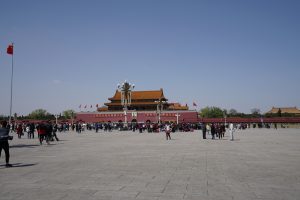
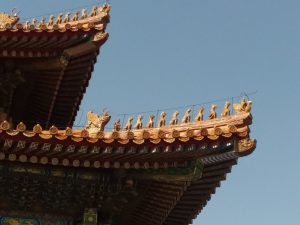
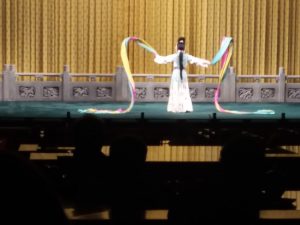
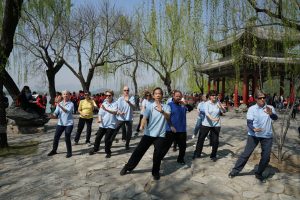
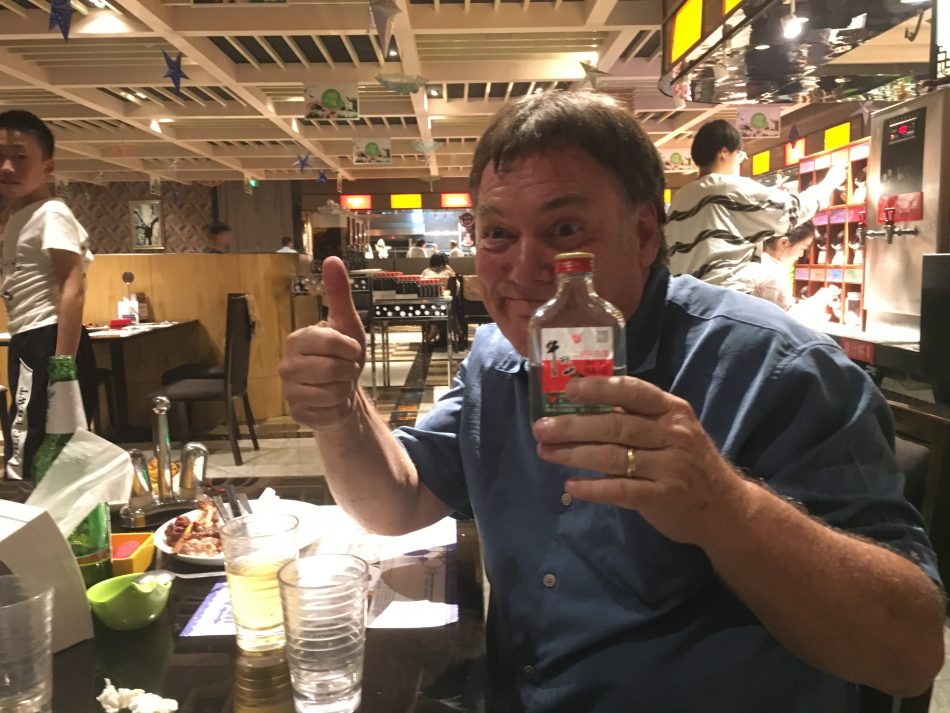
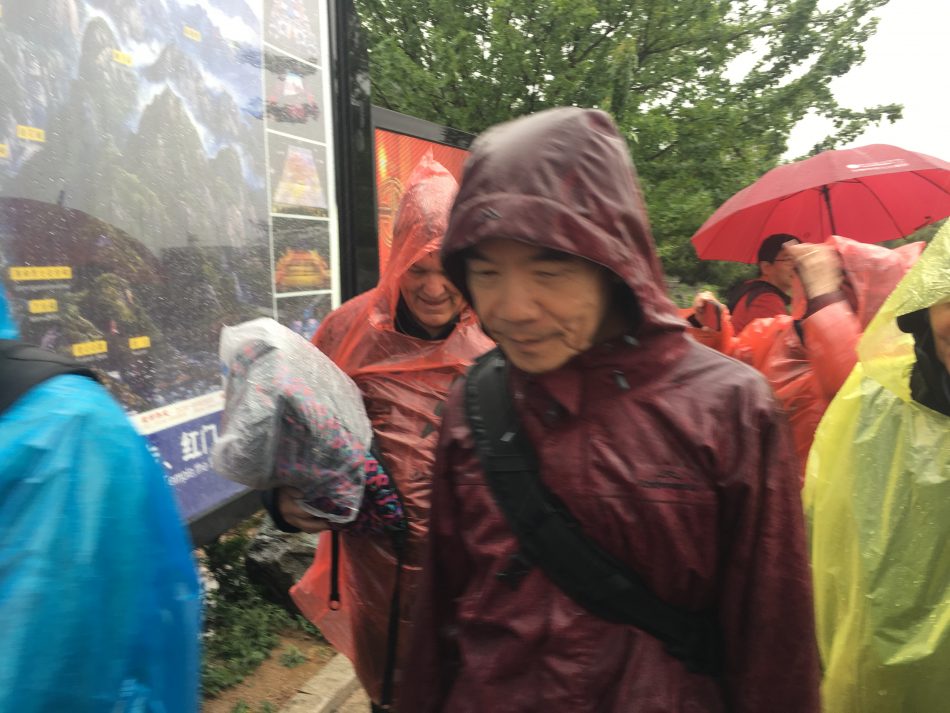
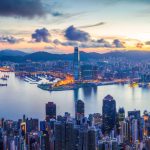
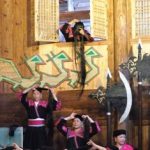
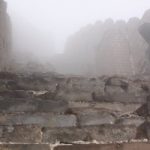
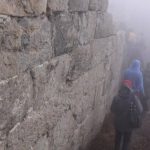
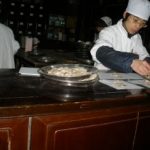
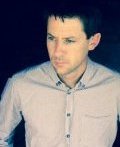
Leave a Reply